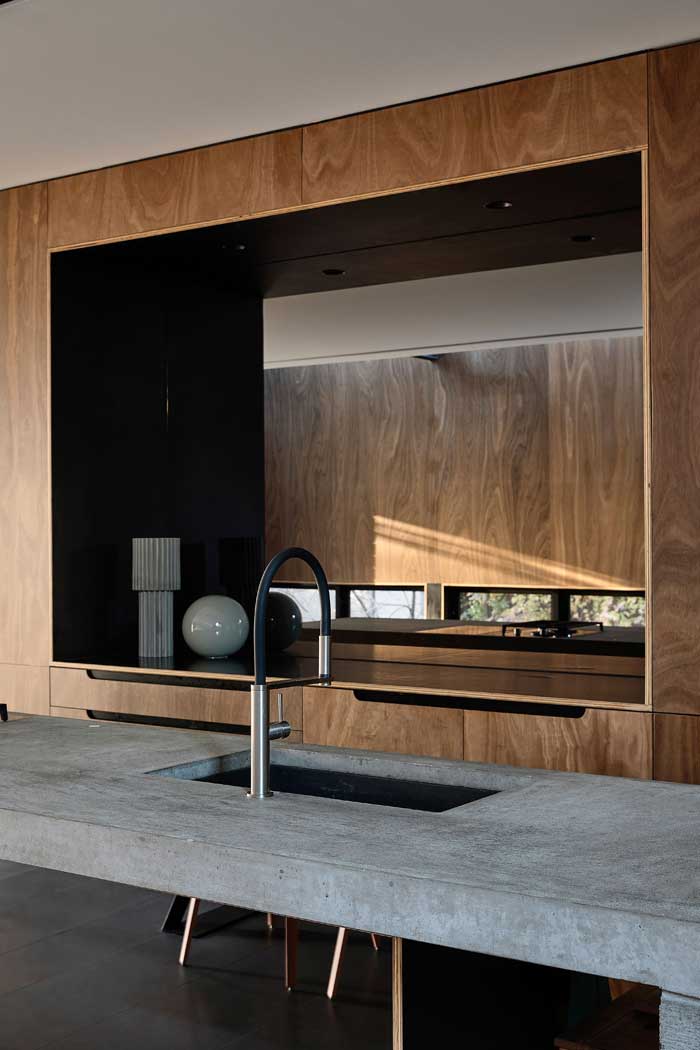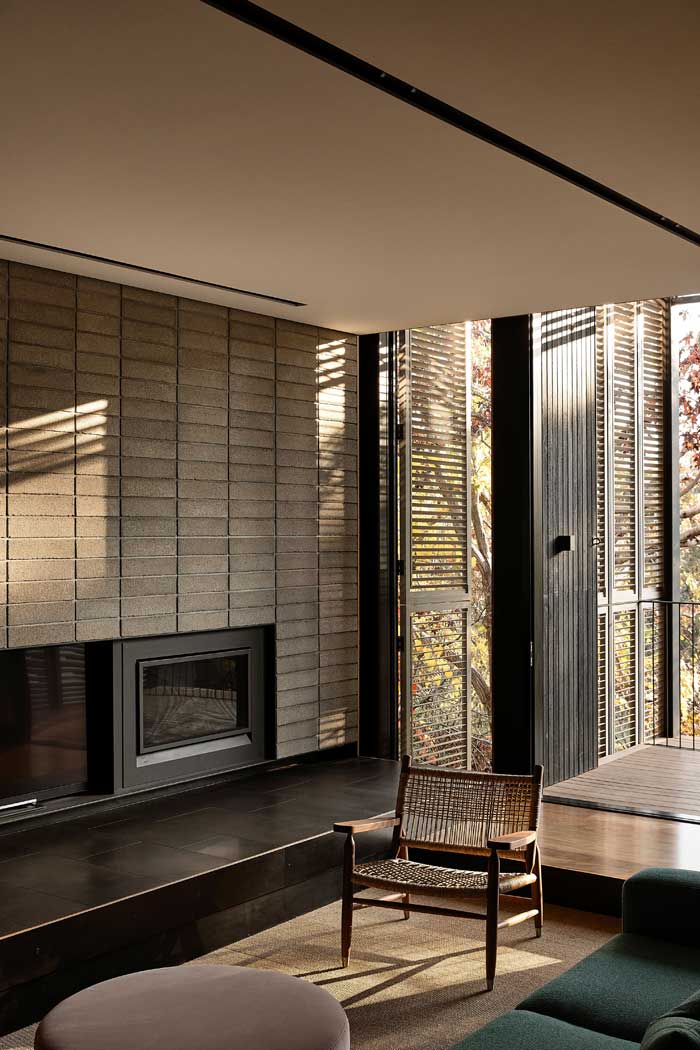The Wabi Sabi House in the leafy Melbourne suburb of Hawthorn takes inspiration from both traditional Japanese and mid-century modern architecture, reflecting the shared passion of the owners for these design elements. Located 3.6 kilometres east of Melbourne’s central business district, this family home overlooking the Yarra River seamlessly connects to the stunning natural surrounds with a carefully chosen materials palette.
Five years in planning gave architect Stuart Holmes and his wife an intimate understanding of the plot, its relationship to the environment and the opportunities it could yield.
“There is a limited palette of materials which has been used according to a reasonably strict set of design rules,” says Holmes. “The cohesiveness this has created can be immediately experienced without having to be understood.”
Externally the materials palette incorporates natural grey concrete block, which has been used extensively as breeze block, and ‘shou sugi ban’ charred timber cladding, against the prevalence of Big River Group’s warm Spotted Gum floor and wall panel and custom-made cement features internally.
“The visually cool and patinaed exterior contrasts with the warmth of the spotted gum inside,” says Holmes. “This is a deliberate Wabi-Sabi reference to the shedding bark of nearby river red gum trees, which is rough and weathered outside and rich and warm inside.”
Working to inject warmth, the timber walls and joinery are a feature of the residence, complementing the grey exterior elements and cement features of the interior; additionally, the natural colorations and depth of colour of the timber connect visually with the fluctuating colours of the external environment.
“The warmth, beauty and unique grain of ‘peeled’ spotted gum veneer made the specification of Big River Amourfloor and ArmourPanel an early decision with respect to internal finishes,” Holmes says. Big River’s veneers are available in various thicknesses for use in floors, walls, furniture and cabinetry enabling a well curated and crafted palette of natural materials to be employed.

The premium quality formply product Armourform was also specified following advice from Big River’s sales and technical teams in the early stages of the project. This early advice helped to dictate some of the key features of the interior design.
“The specification of the selected Big River products enabled a distinct design language to evolve, whereby the black formply plays off against the ‘tan’ spotted gum,” Holmes says. Additionally, the products enabled the construction of routed joinery pulls and door pulls in the cabinetry, which are also key features of the design, linking form to function and truly indicative of the Wabi-Sabi vibe.
Holmes worked with Finnes Building Group to complete the project, which is set across three levels and replaces the remaining half of a 1930s duplex. It consists of four bedrooms, three bathrooms, two living areas, a study, a laundry and, in homage to Holmes’ love of Finland and its traditions, the residence also includes a plunge pool and sauna.
Located on a sloping plot overlooking the Yarra River, the complex site created some challenges through the build, but with a clear comprehension of the project’s vision and the courage and craftsmanship to proceed, Finnes Building Group realised the overarching success of the project.
“This was probably one of our most complex projects to date, it proved challenging at times but also one where the team got an opportunity to really demonstrate their skills. We are all thrilled with the end result,” says Stuart Innes, director of Finnes Building Group.

Wabi Sabi House is a home that delivers a rich and immersive experience. Conceived as a whole, the dwelling is deeply connected to its site whereby interior elements are experienced via some condition of the exterior and vice versa. Dominated by sustainably sourced timber, the internal materials have been strategically developed to add depth and character throughout the space in a rich yet minimal application, culminating in an inner-city suburban home that responds to its surrounding environment and nurtures the principles of the Wabi-Sabi aesthetic throughout.
Photo Credit: Derek Swalwell

